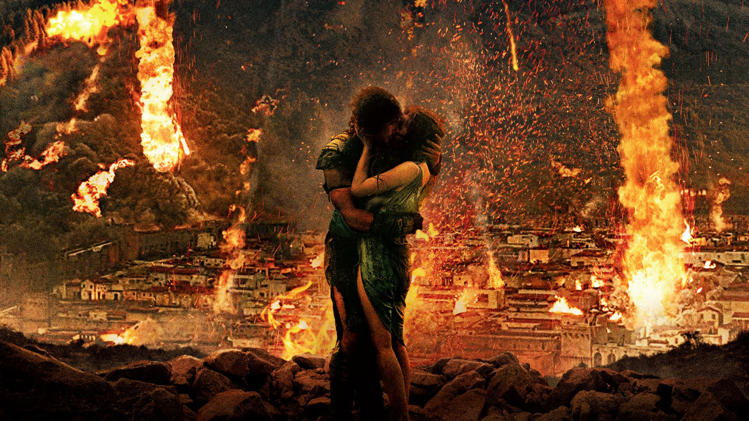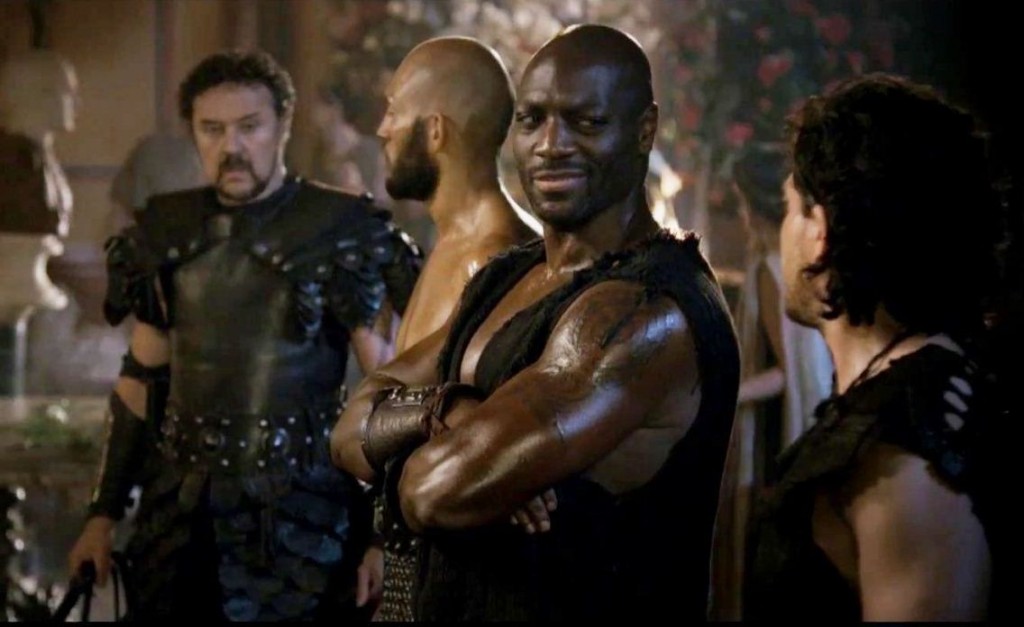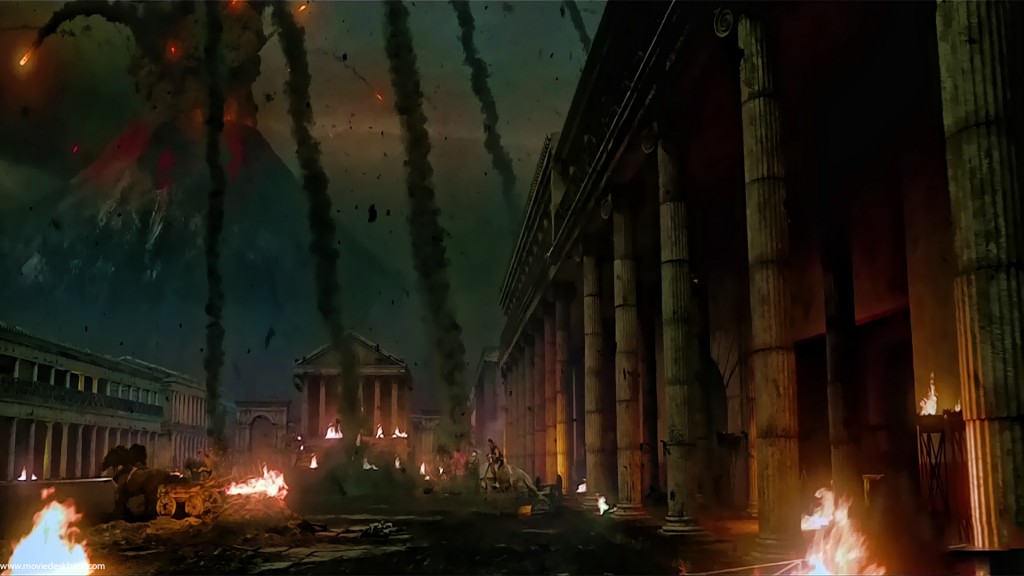Ben K., Here….
I love Pompeii. It’s a fascinating place where the past comes to life; where all one imagines of the Roman Empire is made tangible. It’s amazing to walk through ancient homes surrounded by frescoes, mosaics, restaurants, a bathhouse, a grand theater…and one need only look upward to see the cause of both Pompeii’s destruction and preservation. That vast, once fearsome volcano. Still, it is worth but a glance; the city and her ghosts will forever remain the focus of Pompeii. In his latest film, Paul W.S. Anderson gives us the opposite: a cursory glance at the people and the detailed wrath of top-billed Mount Vesuvius.
Not that I expected any different from the director who gave us Mortal Kombat (1995), Soldier (1998), Alien vs. Predator (2004), three Resident Evil movies, and other assorted cinematic treasures. His greatest achievement appears to be keeping his wife, Milla Jovovich, employed. Here Jovovich takes a break, her spot filled by Emily Browning who has precious little to do. I suppose, aside from looking tough and keeping the “dirt and sweat” appliers busy, the lead actors have little to do as well.
Kit Harington, much more appealing in HBO’s Game of Thrones given the far richer character, plays Milo, a Celtic horseman who witnesses his entire tribe get slaughtered by a pissed off Jack Bauer (Kiefer Sutherland, actually playing a villain named Corvus). Many years later he is shipped off to Pompeii from Londinium, a slave with mad fighting skills and a chip on his shoulder, deserving of a superior venue in which to f*** shit up. Along the way he meets Cassia (Browning), a woman of privilege whose carriage gets stuck in the mud. With an injured horse lying in the road, Milo does what any manly slave would do to get a wealthy woman hot and bothered; he snaps the horse’s neck. It’s love at first sight!
Enter Atticus (Adewale Akinnuoye-Agbaje), a slave who believes the Roman promise of freedom following one more battle, ostensibly against Milo. The two strike up a friendship, of course, before Senator Corvus conveniently shows up, teasing Milo with fantasies of revenge. Oh, lest I forget, it just so happens that out of the entire Roman Empire, Senator Corvus seeks Cassia’s hand in marriage. There is little drama to all of this, it’s a well-trodden formula that culminates in the volcano blowing its top. Milo finds himself in a race against time and cruel Romans to rescue Cassia, despite the fact that even generous estimates would reveal they had spent all of fifteen minutes together by that point.
Once the fire and brimstone comes raining down, it’s difficult to care. The people populating Anderson’s Rome, at least the ones he gives screen time, have little in the way of redeeming qualities. He subscribes, it would seem, to the flawed idea that all Romans were barbaric animals capable of evil, bloodshed, and then more evil. I don’t have enough fingers to count the number of times Rome is bashed and dragged through the mud here, but clearly the idea is that this was a place in need of serious purging. I suppose Anderson hasn’t bothered to look into Cicero, Trajan, Hadrian, Marcus Aurelius, or countless other Romans who accomplished pretty great things. He also forgets that the empire went on for centuries after the eruption of Vesuvius.
However, I can take nothing away from that eruption here; it is quite a sight to behold on the big screen in 3D. The special effects and overall production values are of an impressively high calibre. Should viewers come for the spectacle alone, they will not leave the theater disappointed. Billowing smoke, suffocating clouds of ash, missiles of fire, a great wave crashing through the city…it’s all realized with the utmost care. Obviously, the action is over-the-top throughout, whether it’s a battle in the arena, a chase through the streets, or one of a number of single combat Hollywood showdowns as the city explodes around the combatants. Still, giving credit where it’s due, this is the best the empire has looked since Gladiator and the HBO series “Rome”.
If you ask more of your movies than pyrotechnics and digital effects, Pompeii has little to offer. I can say I was never bored, but I fear that may have been my affection for Roman history sprinkling bias into my Kool-Aid. While I’m being honest, I should admit that I expected an unbearable film due to Anderson’s involvement. Therefore, Pompeii is better than it has any right to be, all things considered, but…that’s still not saying much.
2 out of 5 STARS
-Ben Keeney




